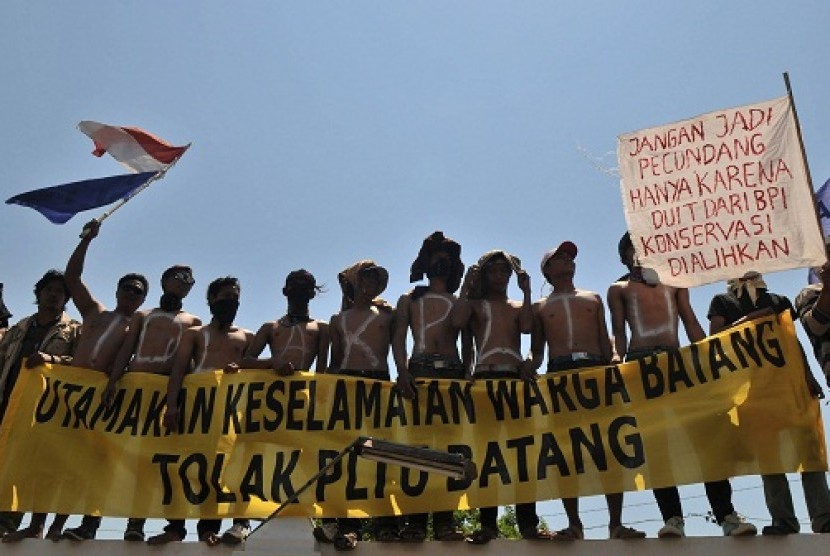REPUBLIKA.CO.ID, JAKARTA - Indonesia was racing to speed up construction of gas-fired power projects in Java to prevent a supply crisis if delays continued at the Batang and Cirebon coal-fired power projects, government officials said.
Power demand is growing at more than 7 percent a year in Indonesia, which plans to add 60 gigawatts of power capacity to its existing grid by 2022 to meet the burgeoning needs of its increasingly affluent economy.
But bureaucratic hurdles, a lack of investment and land disputes have held up power projects in Southeast Asia's biggest economy including the public-private partnership in Batang, Central Java, the first of its kind in Indonesia and the biggest new generation coal-fired power station in the region. With 29 hectares of land yet to be acquired for the 2,000 megawatts (MW) Batang project, there remain uncertainties surrounding when its construction will begin. It was initially due to reach financial closing in 2012, but this has already been rescheduled twice.
"We need to find supply sources quickly," Murtaqi Syamsuddin, planning director at Indonesia's state-owned power utility PT Perusahaan Perseroan Listrik Negara (PLN), told reporters on Friday.
The firm will speed up construction of around 1,200 MW of gas turbine power stations in Grati (East Java) and Tanjung Priok and Muara Karang (Jakarta) using land owned by PLN to reduce risk. The emphasis on gas would mean Indonesia may need to step up imports of liquefied natural gas (LNG) amid stagnant domestic gas output.
Gas-fired power stations, which currently produced around 24 percent of Indonesia's power, could be built in less than 3 years, much faster than those using coal that could take five years, Syamsuddin said. The projects, which would cost around 450 million USD apiece, would probably be funded by the Export Credit Agency, he said, noting that PLN's current profit margin was less than ideal, restricting its ability to finance such projects.
However, an expansion of the 1,000 MW Cirebon coal-fired power station in West Java was also facing setbacks, Syamsuddin said, meaning PLN was still scrambling to fill a 1,800 MW gap in supply.


